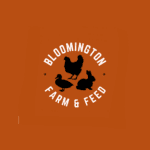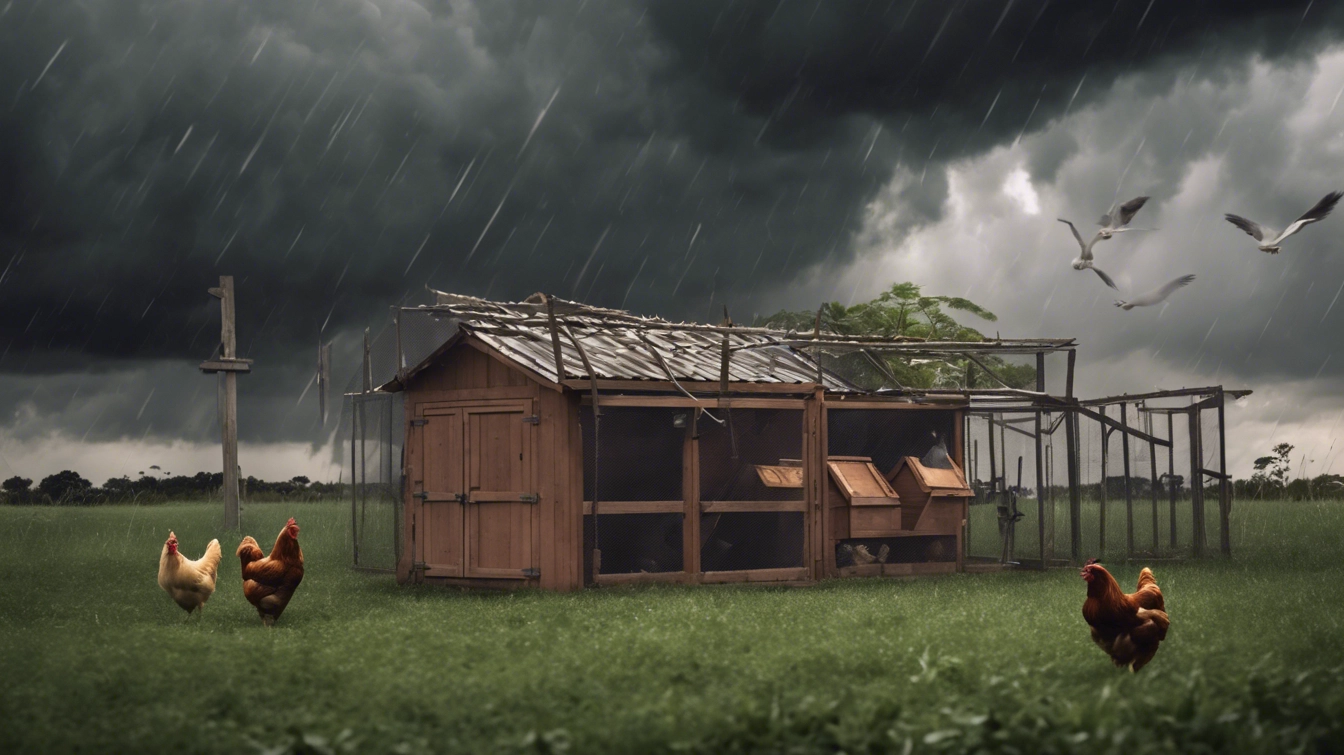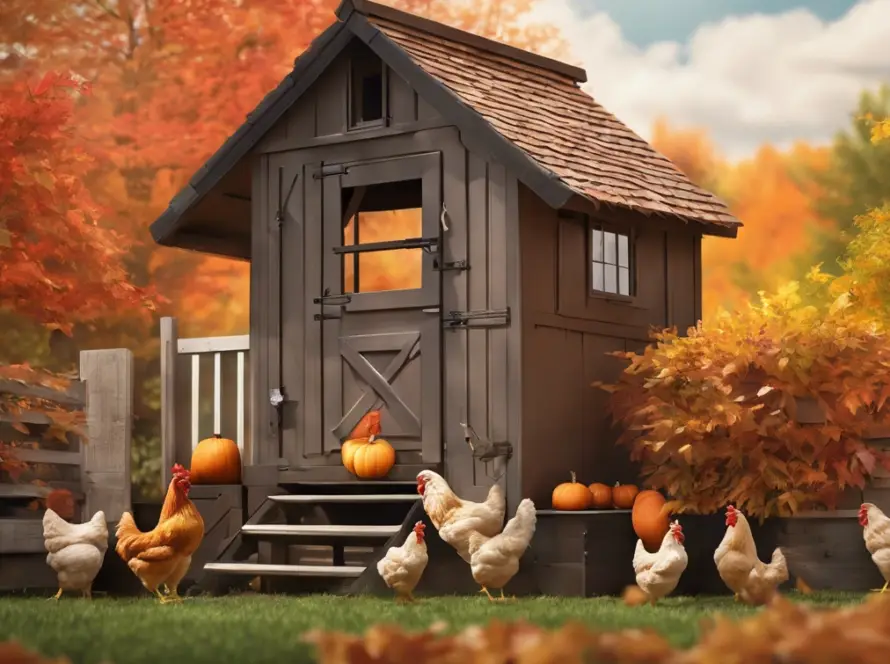Hurricanes can be devastating for humans and animals alike, and as a backyard chicken keeper, it’s important to take extra steps to ensure your flock’s safety during extreme weather events. Whether you’re bracing for Hurricane Milton or preparing for future storms, here’s a guide on what to do before, during, and after a hurricane to protect your chickens.
Before the Hurricane: Preparation is Key
1. Secure the Coop
The first thing you need to do is make sure your coop is sturdy enough to withstand strong winds and heavy rain. Inspect your coop for any weak spots or leaks, and reinforce doors, windows, and roofs. Use sandbags around the base of the coop if flooding is a concern. Ensure that the coop is anchored to the ground to prevent it from being blown over.
2. Provide Shelter for Your Flock
While your coop may offer some protection, it might not be enough for a severe storm. If you have a garage, barn, or another solid structure, consider moving your chickens inside temporarily. Make sure the area is well-ventilated and secure from predators. Set up temporary bedding and place their feed and water inside.
3. Stock Up on Supplies
Prepare for a potential shortage of food, water, and other essential supplies by stocking up on:
- Feed: Have at least a week’s worth of chicken feed stored in waterproof containers.
- Water: Fill large containers with water in case power outages make it difficult to pump fresh water.
- Bedding: Ensure you have extra bedding material like straw or wood shavings on hand in case the coop floods or becomes damp.
4. Collect Eggs Early
In the hours before the storm hits, collect all eggs and remove them from the coop to prevent damage or contamination.
During the Hurricane: Keep Your Chickens Safe
1. Stay Inside, Stay Calm
The best thing you can do for your chickens during the hurricane is to leave them in a safe, secured area and stay indoors yourself. Resist the urge to check on your chickens while the storm is in full force—it’s safer for everyone if you ride out the storm indoors.
2. Monitor the Situation
Keep an ear on weather updates and prepare to take immediate action if flooding becomes more severe than expected. If you hear of flash floods or other life-threatening conditions, and you still have time, consider moving your chickens to higher ground.
3. Ensure Access to Food and Water
Make sure your chickens have plenty of food and water available inside their shelter. If you’re keeping them inside a barn or garage, check that they have space to move around comfortably.
After the Hurricane: Assess the Damage
1. Inspect the Coop and Surroundings
Once the storm has passed and it’s safe to go outside, inspect the coop for damage. Look for any signs of structural issues, flooding, or predator entry. If the coop has flooded, remove wet bedding immediately to avoid mold and bacteria growth.
2. Check on Your Chickens’ Health
Assess each chicken individually for signs of stress or injury. Look out for:
- Dehydration: Ensure they have access to fresh water immediately.
- Stress: Chickens may be rattled after the storm. Keep them in a quiet, secure area for a few days until they calm down.
- Illness or Injury: If any chickens are injured, separate them from the flock to prevent pecking and get them veterinary care if needed.
3. Clean and Disinfect
Once your coop is secure, clean and disinfect the area. Replace all bedding that got wet or soiled during the storm. Consider using a natural disinfectant to eliminate any bacteria or parasites that might have been introduced during the hurricane.
4. Monitor for Long-Term Stress
Chickens can be affected by stress long after a hurricane passes. Watch for signs of reduced egg production, lethargy, or unusual behavior. Provide a calm, consistent environment to help them recover.




